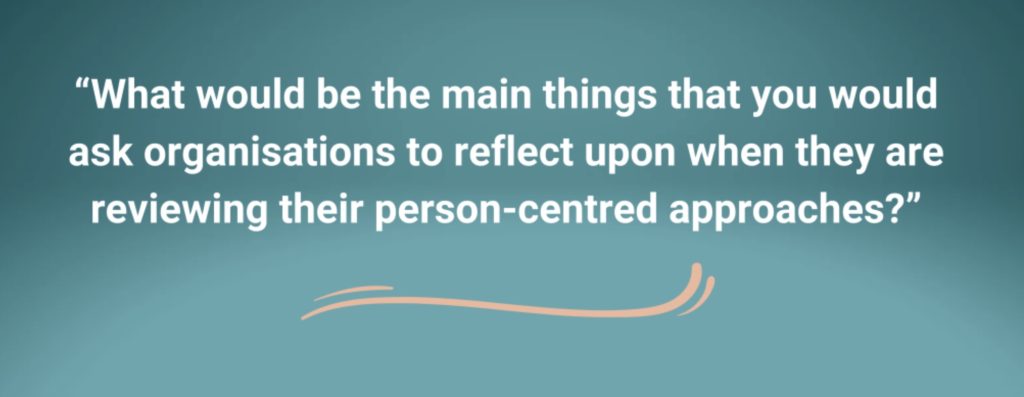
I want to answer this with two things that I find the most important.
- The invisible impacts of your care
The one’s that you can’t see to understand and need to manage properly. Despite my physical deficits, it is these invisible impacts that are often overlooked. As my recovery has progressed and I have been able to overcome many challenges, it is grappling with these aspects that are the hardest. Things like my fatigue, pain, ongoing grief of identity and my visual issues. So, to ensure the person-centred care approaches holistically, it’s important to factor in the emotional aspects of one’s care too. - The inclusion of lived experience
The importance of always incorporating one’s lived experience into their person-centred approaches is so often overlooked in its importance. Not only are you gaining this perspective when you engage with someones lived experience, but you are also showing the value of this insight into your care. This is strengthening your rapport with your client, their capacity, their performance and overall outcomes. A person-centred approach with these two key elements being focused on means a greater bond between you and your patient and allows you to offer a more holistic care to their recovery.